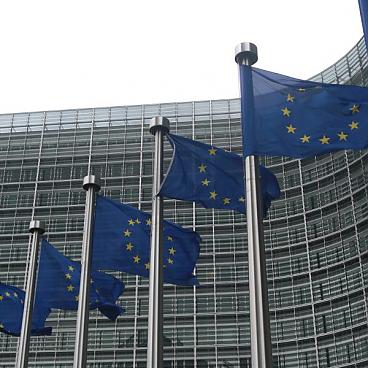The European Union must be transformed
The European Union must be transformed

The Brexit referendum serves to remind us that multinationals and neoliberal ideas have acquired too great an influence on the European Union, write Harry van Bommel and Dennis de Jong. They want to see drastic transformation.
Today the people of the United Kingdom go to the polls to decide the future of their nation: in or out of the European Union? The referendum has stirred up a bitter debate in the country, the Brexit scenarios varying from large scale economic loss to the retaking of control over the economy. In reality nobody can predict what will happen if the British leave the EU and in any case that isn’t really the heart of the matter. The point is that the Brexit referendum forces us all to reflect on the central question, the question of power within Europe. Who actually controls things?
British Prime Minister David Cameron has played a cunning game in the runup to today’s vote, first of all announcing a referendum and then delivering his wishlist to Brussels, where he managed to get a deal which enabled him to campaign for ‘Bremain’. The limiting of social rights for immigrants demanded by Cameron is something we entirely reject, but the fact that the member states in the event of a ‘Bremain’ may soon be able to hold up a red card to European legislation will strengthen the EU’s democratic legitimacy. And that would be a straightforward gain. The EU began as a project designed to guarantee prosperity, peace and stability on the European continent under the slogan ‘never again war’. In the first decade following the Second World War the European system of cooperation proved a successful formula, although in that early phase attention was paid only to economic growth. Nevertheless it was back then also possible to record successes in the area of social rights: European legislation regarding equal treatment for men and women and on conditions of employment was adopted in that period.
The rise of neoliberalism
That changed as a result of the rise of neoliberalism during the 1980s. The EU became the plaything of the multinationals, united in the European Roundtable of Industrialists, transforming in a fundamental fashion the character of the European Union. With the introduction of the Maastricht Treaty monetary union became a fact and the neoliberal principles of more market and less government were anchored in European law and regulation. The member states must converge economically, in order principally to give free play to capital. Multinationals and the financial sector gained ever more power, at the expense of democracy. The introduction of the Lisbon Treaty, which was largely identical to the rejected European Constitution, was for them the icing on the cake.
The UK referendum is an existential test for the EU, in which the question of what Europe we want to live in is more important than ever. This is because the European continent is struggling with a multiple crisis. In eastern Europe member states, with Poland and Hungary in the lead, are undermining the constitutional state in a most brutal fashion. Greece is far from having been released from harsh austerity policies, and according to the IMF will in 2060 be contending with a national debt of some 250% of GDP. In the meantime the country will have to make Herculean efforts if it is to comply with the agreement which the EU has made with Turkey, a deal which human rights organisations have quite correctly repudiated. In the midst of this tumult the economic integration of the European Union has quietly continued.
It’s time now to apply the brakes. The EU has become a bureaucratic and technocratic Moloch, while a European political elite is seeking by means of the monetary union to force on us a federal union. This is not at all what the European public wants to see, as is witnessed by the growing euroscepticism across the continent. Instead, we want to strive for a new European treaty, with room for all of the aspects which make Europe worthwhile: strong democratic and constitutional states, openness and diversity, a rich cultural tradition and solidly anchored social and human rights.
Abolish the European Commission
The Socialist Party has made four proposals to bring such a Europe closer: we want the existing European Commission abolished, so that European cooperation is no longer handed down from on high, but rests primarily on agreements between member states. Measures which impose on eurozone countries budgetary policies which undermine social policies must be changed. Member states should, if the situation demands it, regain the possibility to impose limits on the internal market, principally in relation to the free movement of workers, services and capital. And no further powers should be transferred to the EU without member states being able to put the matter to their electorates in referenda. For the Netherlands we demand first and foremost that this right should always be exercised. These demands must result in a treaty amendment, which can then be put before the people. It’s time now to apply the brakes, because the EU has become a bureaucratic and Harry van Bommel and Dennis de Jong: technocratic Moloch.
- See also:
- Europe
